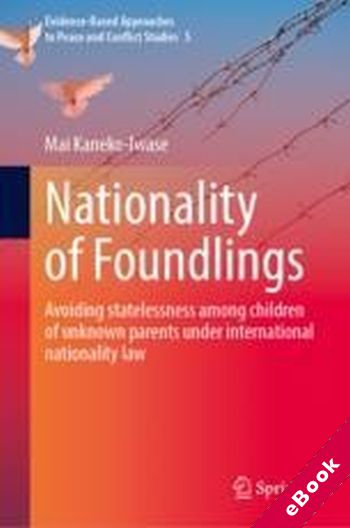
The device(s) you use to access the eBook content must be authorized with an Adobe ID before you download the product otherwise it will fail to register correctly.
For further information see https://www.wildy.com/ebook-formats
Once the order is confirmed an automated e-mail will be sent to you to allow you to download the eBook.
All eBooks are supplied firm sale and cannot be returned. If you believe there is a fault with your eBook then contact us on ebooks@wildy.com and we will help in resolving the issue. This does not affect your statutory rights.
This is the first book dedicated to clarifying the concept of “foundlings” and how to best prevent their statelessness in light of the object and purpose of Article 2 of the 1961 UN Convention on the Reduction of Statelessness and equivalent nationality law provisions. Among other features, the book defines the terms “foundling,” including the maximum age limit of the child to be considered a “foundling”; “unknown parents”; being “found” in a territory; and “proof to the contrary”; as well as the procedural issues such as the appropriate burden and standard of proof. In doing so, the book draws upon a comparative analysis of national legislation on “foundlings” covering 193 states, case law, and precedents in some states as well as international human rights law norms including the best interests of the child. As its conclusion, the book proposes an inclusive model “foundling provision” and a commentary to inform legislative efforts and interpretation of the existing provisions. Its findings are useful not only to state parties to the 1961 Convention but also to non-state parties, particularly in countries lacking systematic civil documentation or experiencing the effects of armed conflicts, migration, trafficking, and displacement.